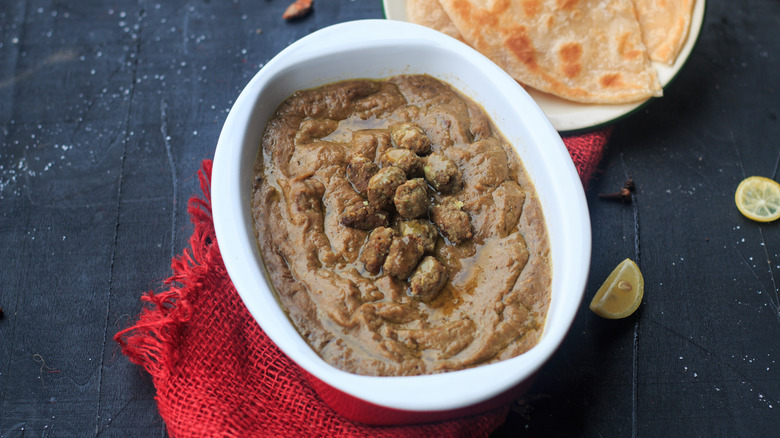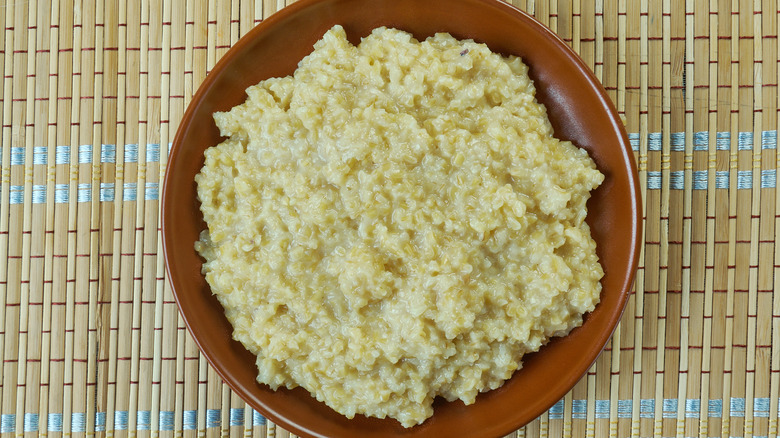What Is Harees And When Is It Eaten?
As Muslims around the world fast, pray, and break their fasts in recognition of the holy month of Ramadan, one Middle Eastern dish is on particularly high rotation: Harees, which is a porridge-like mixture of soaked whole wheat and meat that's cooked for several hours and served warm with ghee (via Abu Dhabi Department of Culture and Tourism). It's said to have been one of the Prophet Muhammad's most beloved dishes, according to the The Tempest, which reports that it's a comforting, digestible dish enjoyed after long days of fasting.
Harees translates to "beaten wheat and meat" in English, the food blog 196 Flavors explains, which is fitting because its name derives from the Arabic word "harasa," meaning to mash or smash. To become harees, whole wheat berries are soaked overnight, simmered with lamb or chicken, and, traditionally, beaten with a wooden tool called a medhrab until they reach a "mashed" porridge consistency. Common flavorings include cumin, garlic, cardamom, or crispy onions — or cinnamon and sugar for a sweeter preparation without meat — depending on the region where it's eaten (via 196 Flavors).
When and where harees is consumed
Harees and its many variations are enjoyed in a wide range of locations, including several parts of Asia, Armenia, the Middle East, and even India, according to 196 Flavors. It dates back to as early as the 10th century as a dish for a crowd, and today it's still made in large batches to be shared with family and neighbors at weddings, special events, and holiday gatherings.
Most commonly, though, harees is eaten at iftar, the post-sunset meal after a day of fasting during Ramadan (via Britannica). Blogger Maroc Mama, who grew up in the United Arab Emirates, remembers households sending harees and other iftar dishes to neighbors during the Holy Month. "It was sent in generous amounts to each family," she writes. "This was really in spirit with Ramadan, the month of giving and charity." Harees is also known for being highly digestible, the Abu Dhabi Department of Culture and Tourism says. This makes it the ideal meal for when you're hungry after fasting but still have lots of bending and standing to do during prayer, Vox explains.

